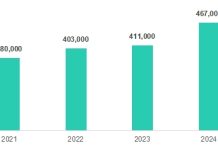Singapore’s Prime Minister Lee Hsien Loong has recently announced that the nation has approved the Pfizer-BioNTech coronavirus vaccine. This means that Singapore will be the first country in Asia to receive the US developed shot.
Lee says that the first of the doses are due to arrive later in December, and that more of the vaccine will be coming in the months ahead after approval. The government believes that there will be more than enough of the vaccine for the city-state’s 5.7 million people by the third quarter of 2021.
The prime minister said getting vaccinated will be voluntary and free, and that health care workers and other vulnerable individuals would be prioritised. But he said he “strongly encourages” residents including foreign nationals to get the shot when they can, adding that politicians would receive early doses to demonstrate confidence in safety.
Lee also said that Singapore will be moving into Phase 3 of its reopening in late December, allowing for gatherings of up to eight people instead of only five. While neighbouring countries are rushing to get their hands on a vaccine that could potentially solve all the problems brought forth byCovid-19, Singapore appears to be taking the slow and steady approach, opening itself up to more options in the future if needed, while positioning itself as a hub for supplying vaccines to other nations within the region.
Lee said his government started working “behind the scenes” to line up vaccines early on in the pandemic. He said it reached out to pharmaceutical companies, set aside more than 1 billion Singapore dollars (US$750 million) and “placed multiple bets” with early down payments. He cited Moderna and Sinovac as two other suppliers Singapore is looking at.
Additionally, Singapore will not be relying solely on foreign solutions to solve their problems. Singapore’s own Duke-NUS Medical School has also been working with U.S.-based Arcturus Therapeutics on another potential vaccine, which entered clinical trials in August. While still awaiting approval, optimistic expectations are high that this collaboration will yield doses for the nation’s population by the first quarter of 2021.














